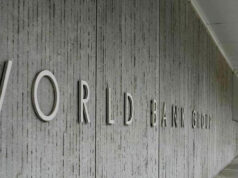
THE International Labor Organization (ILO) said heat-related stress resulting from global warming will result in productivity losses equal to more than $2 trillion by 2030 worldwide.
In its “Working on a warmer planet: The impact of heat stress on labour productivity and decent work” report, the labor arm of the United Nations (UN) said that its projections in the next decade the lost productivity is equivalent to the output of 80 million jobs.
“Projections based on a global temperature rise of 1.5°C by the end of this century suggest that in 2030, 2.2% of total working hours worldwide will be lost because of higher temperatures, a loss equivalent to 80 million full-time jobs. This is equivalent to global economic losses of$2,400 billion,” ILO said in a statement on Monday.
In the Philippines, total projected work hours lost due to heat stress are estimated at 2.33% in 2030, the equivalent of 1.217 million full-time jobs.
Heat stress is defined as intolerance to heat, typically for temperatures beyond 35°C. ILO said that this is considered and occupational health and safety hazard that needs to be addressed.
While the report said workers in all industries will be affected by heat stress, some will be more at risk than others.
“Workers in all sectors are affected, but certain occupations are especially at risk because they involve more physical effort and/or take place outdoors. Such jobs are typically found in agriculture, environmental goods and services (natural resource management), construction, refuse collection, emergency repair work, transport, tourism and sports,” the report said. They added even factory workers in indoor settings are at high risk if temperatures in the workplace are not properly regulated.
ILO’s research department head Catherine Saget said that economic losses will not be the only result of global warming, which will also affect labor conditions and contribute to job displacement.
“In addition to the massive economic costs of heat stress, we can expect to see more inequality between low and high income countries and worsening working conditions for the most vulnerable, as well as displacement of people. To adapt to this new reality appropriate measures by governments, employers and workers, focusing on protecting the most vulnerable, are urgently needed, “ Ms. Saget, who is also one of the report’s authors, said.
“Although governments are instrumental in creating a regulatory and institutional environment that facilitates behavioral change at the workplace level, the role of both employers’ and workers’ organizations is no less crucial to a successful implementation of adaptation measures,” the report said. — Gillian M. Cortez



